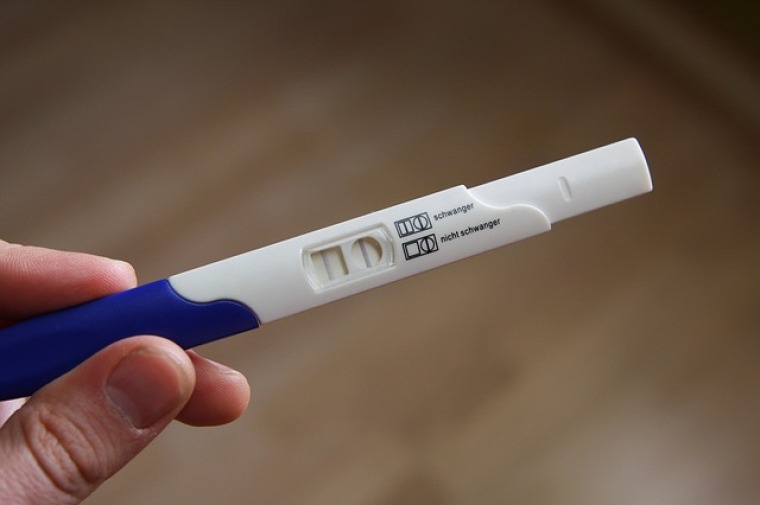Trump administration redirects funds from teen pregnancy research to abstinence programs

The U.S. Department of Health and Human Services (HHS) is pulling over $200 million in taxpayer funding away from teen pregnancy prevention programs and research. Instead, it will redirect the money to abstinence programs.
On July 14, HHS Secretary Tom Price made the decision to cut $213.6 million from 81 organizations that had been awarded five-year grants under former President Barack Obama.
According to Church Militant, the administration of President Donald Trump is now calling for the redirection of the money, with an additional $50 million, towards abstinence and personal responsibility programs between 2018–2024.
Cleveland Right to Life commended the Trump administration for the decision. "It is certainly refreshing to see that the President and his administration are acknowledging this fact and are working with abstinence program organizations who have shown that these programs work," said the group's president, Molly Smith.
"Throwing contraception at young girls and telling them that as long as they are contracepting they can be sexually active verges on abuse," she continued.
Federal funds for abstinence-only programs, which had been receiving only $10 million each year, had been cut under the Obama administration in February 2016.
More than 80 institutions conducting research in teen pregnancy prevention lost their funding, including Children's Hospital of Los Angeles and Johns Hopkins University, Reveal News reported.
The decision to take away funding from teen pregnancy prevention programs came after Trump appointed abstinence-only advocate Valerie Huber to head the Office of Adolescent Health.
Huber once served as the president and CEO of Ascend, a group that advocates for abstinence-only education and was once known as the National Abstinence Education Association.
Among the programs affected by the HHS decision include the Choctaw Nation's efforts to combat teen pregnancy in Oklahoma, Johns Hopkins' work with adolescent Apaches in Arizona, and the University of Texas' guidance for youth in foster care.
According to the Centers for Disease Control (CDC), youth between the ages of 15 and 24 make up just over a quarter of the sexually active population, but they "account for half of the 20 million new sexually transmitted infections that occur in the United States each year."
The CDC also noted that teen pregnancy decreased eight percent from 2014–2015 through a combination of both contraception and abstinence programs.
"The birth rate to unwed mothers has reached alarming proportions despite these young women having easy access to contraception," Smith added.
 Christians don't have to affirm transgenderism, but they can’t express that view at work: tribunal
Christians don't have to affirm transgenderism, but they can’t express that view at work: tribunal Archaeology discovery: Medieval Christian prayer beads found on Holy Island
Archaeology discovery: Medieval Christian prayer beads found on Holy Island Presbyterian Church in America votes to leave National Association of Evangelicals
Presbyterian Church in America votes to leave National Association of Evangelicals Over 50 killed in 'vile and satanic' attack at Nigerian church on Pentecost Sunday
Over 50 killed in 'vile and satanic' attack at Nigerian church on Pentecost Sunday Ukrainian Orthodox Church severs ties with Moscow over Patriarch Kirill's support for Putin's war
Ukrainian Orthodox Church severs ties with Moscow over Patriarch Kirill's support for Putin's war Islamic State kills 20 Nigerian Christians as revenge for US airstrike
Islamic State kills 20 Nigerian Christians as revenge for US airstrike Man who served 33 years in prison for murder leads inmates to Christ
Man who served 33 years in prison for murder leads inmates to Christ


 Nigerian student beaten to death, body burned over ‘blasphemous’ WhatsApp message
Nigerian student beaten to death, body burned over ‘blasphemous’ WhatsApp message 'A new low': World reacts after Hong Kong arrests 90-year-old Cardinal Joseph Zen
'A new low': World reacts after Hong Kong arrests 90-year-old Cardinal Joseph Zen Iran sentences Christian man to 10 years in prison for hosting house church worship gathering
Iran sentences Christian man to 10 years in prison for hosting house church worship gathering French Guyana: Pastor shot dead, church set on fire after meeting delegation of Evangelicals
French Guyana: Pastor shot dead, church set on fire after meeting delegation of Evangelicals ‘Talking Jesus’ report finds only 6% of UK adults identify as practicing Christians
‘Talking Jesus’ report finds only 6% of UK adults identify as practicing Christians Mission Eurasia ministry center blown up in Ukraine, hundreds of Bibles destroyed: 'God will provide'
Mission Eurasia ministry center blown up in Ukraine, hundreds of Bibles destroyed: 'God will provide' Church holds service for first time after ISIS desecrated it 8 years ago
Church holds service for first time after ISIS desecrated it 8 years ago Burger King apologizes for 'offensive campaign' using Jesus' words at the Last Supper
Burger King apologizes for 'offensive campaign' using Jesus' words at the Last Supper Uganda: Muslims abduct teacher, burn him inside mosque for praying in Christ’s name
Uganda: Muslims abduct teacher, burn him inside mosque for praying in Christ’s name